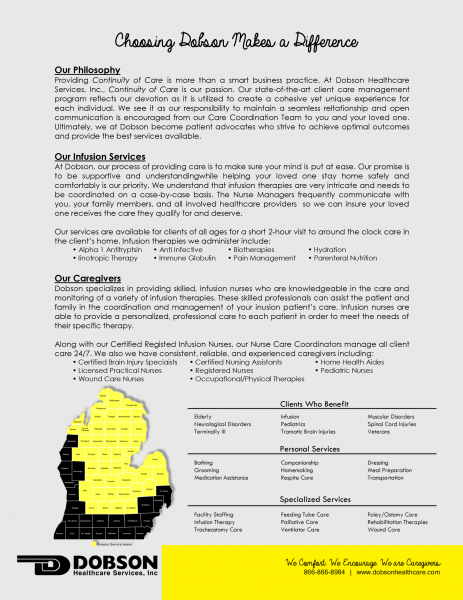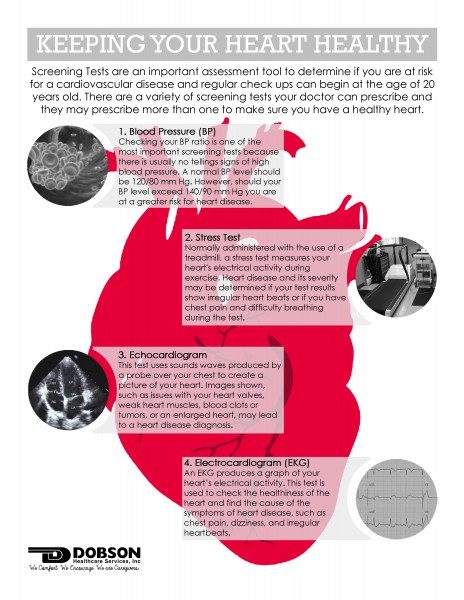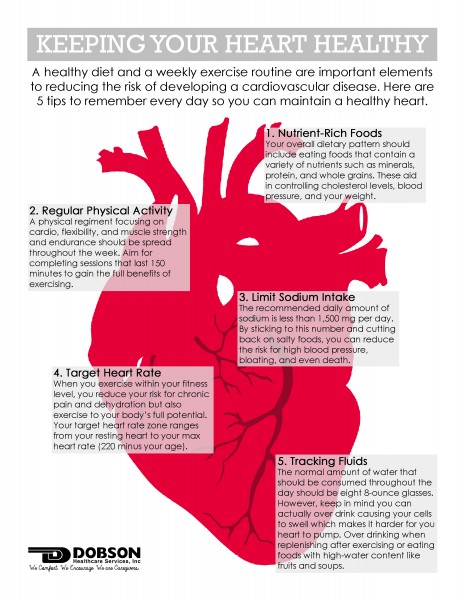If you or a loved one has been diagnosed with a cardiovascular disease, you may require Infusion Therapy in order to receive your medicine. Infusion Therapy involves administering nutrition and medication intravenously, or directly into the veins, through the use of a needle or catheter. Many Infusion Therapy candidates require treatment for heart diseases such as congestive heart failure and coronary heart disease. For those needing long-term therapy, the more popular and more comfortable setting choice is home infusion rather than an inpatient setting.
We at Dobson, specialize in providing skilled, infusion nurses who are knowledgeable in the care and monitoring a variety of infusion therapies. These skilled professionals can assist the patient and family in the coordination and management of your infusion patient’s care. Infusion nurses are able to provide a personalized, professional care to each patient in order to meet the needs of their specific therapy. To learn more about our Infusion Services, read our Fact Sheet below or give us a call at 866-866-8984!
National Home Infusion Association. (n.d.). Infusion FAQs. Retrieved February 22, 2016
According to the National Heart, Lung, and Blood Institute, a diagnosis of a cardiovascular disease is “…based on your medical and family histories, your risk factors, a physical exam, and the results from tests and procedures” (National Heart, Lung, and Blood Institute, 2014). Below you will find a brief explanation of a few of these screening tests. If you feel you are at risk for heart disease, we encourage you to talk to your doctor about these tests, his or her recommendation for you, and what the results of the test(s) will mean.
American Heart Association. (2014, October 21). Heart-Health Screenings. Retrieved February 18, 2016.
American Heart Association. (2015). What is a Stress Test? Retrieved February 18, 2016.
National Heart, Lung, and Blood Institute. (2012, February 29). The Heart Truth® for Women: If You Have Heart Disease. Retrieved February 18, 2016.
National Heart, Lung, and Blood Institute. (2014, April 21). How Is Heart Disease Diagnosed? Retrieved February 18, 2016.
National Heart, Lung, and Blood Institute. (2011, October 31). What Does Echocardiography Show? Retrieved February 18, 2016.
WebMD. (2014, August 13). Heart Tests: When Do You Need Them? Retrieved February 18, 2016.
WebMD. (2014, September 26). What Is an Electrocardiogram (EKG or ECG) Test? Retrieved February 18, 2016.
Photo: Blood Clotting Nemesis of Life. (n.d.). Retrieved February 18, 2016.
Photo: Gwinnett Clinic. (n.d.). Cardiac Testing. Retrieved February 18, 2016.
Photo: Echocardiographer.org. (n.d.). Transthoracic Echo. Retrieved February 18, 2016.
Photo: ECG Wave-Maven. (2015, June 6). Diagnostic Cardiac Catheterization and Coronary Angiography. Retrieved February 18, 2016
American Heart Association, The. (n.d.). Sodium and Your Health. Retrieved February 09, 2016
American Heart Association, The. (2016, January 13). Target Heart Rates. Retrieved February 09, 2016.
American Heart Association, The. (2016, January 20). The American Heart Association’s Diet and Lifestyle Recommendations. Retrieved February 09, 2016.
CardioSmart. (2015, February). Heart Failure: How to Limit Your Fluids. Retrieved February 9, 2016.
Fardy, S. (n.d.). Why monitoring your heart rate is so important! Retrieved February 09, 2016.
Walters, J. (n.d.). Is It Possible to Drink Too Much Water? Retrieved February 09, 2016.



